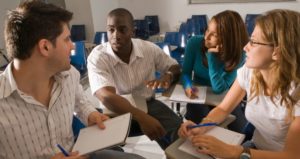Advice to New Teachers and New Students: Learning is a Quest
Three new teachers at the front end of academic careers, about to face their first classes as teachers, want to know from somebody at the back end, “What’s most important for new teachers to know?” I don’t hear myself saying anything very coherent. I don’t



